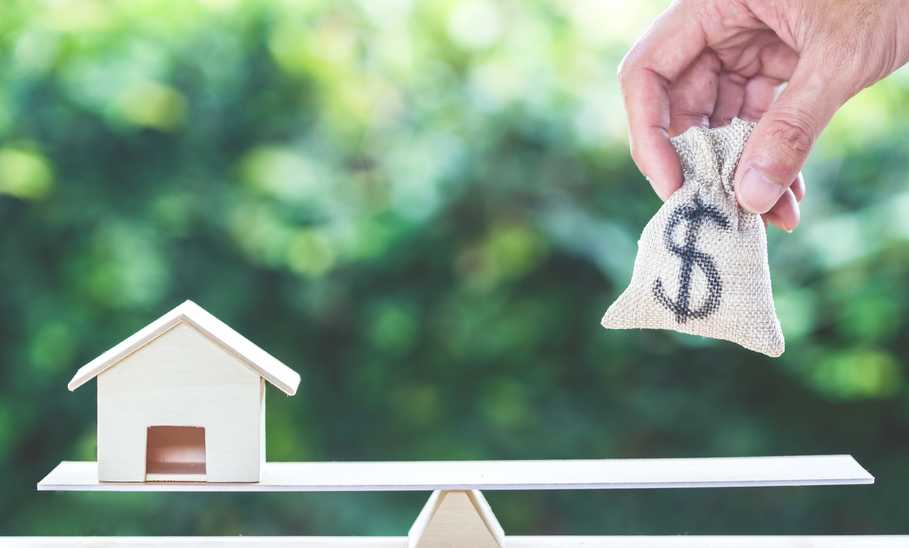How to Pay Back a Reverse Mortgage

Our evaluations and opinions are not influenced by our advertising relationships, but we may earn a commission from our partners’ links. This content is created by TIME Stamped, under TIME’s direction and produced in accordance with TIME’s editorial guidelines and overseen by TIME’s editorial staff. Learn more about it.
A reverse mortgage is a type of home loan available to homeowners age 62 and over to use the equity of their home to borrow money for living expenses. The balance of the reverse mortgage goes up over time with the money taken out of the home. The loan must be paid back after the homeowner has moved out or passed on, but there are other scenarios in which you may want to pay it back earlier.
A reverse mortgage can be an expensive product and should be used only if absolutely necessary. If you’re in the position to pay back a reverse mortgage, you’ll probably want to take it. Here’s a look at how reverse mortgages work, how to pay them off—and when you might be required to pay off or sell—and what you should consider before you pay them off.
Homeowners who are 62 or over sometimes find they need more money for their monthly expenses. If there’s nowhere else to turn, they may be able to get a part of their home equity paid to them with a reverse mortgage.
There are several types of reverse mortgages, including:
One of the main draws of the reverse mortgage is you don’t pay the loan back as long as you live in the home. However, once you leave the home for a certain time period, the reverse mortgage must be paid back shortly.
There are a number of conditions you need to meet to qualify for a reverse mortgage, including:
You can receive the funds from a reverse mortgage in one of the following ways:
The trouble with these loans is they eat up your home’s equity. Compounding interest and fees are added to the ballooning balance of the loan each month, which is often left to be paid off when the home is sold near the end of life. It’s also possible to run into trouble with the reverse mortgage if you have trouble paying property taxes or homeowners insurance for the home.
Whether you are living in a home with a reverse mortgage alone, with a co-borrower, or with someone else (including a spouse who isn’t the co-borrower) it’s crucial to know the rules that could trigger the requirement to repay the loan or sell your home. These include not paying taxes or insurance, or allowing the house to become dilapidated.
Crucial, especially if you get sick or enjoy traveling, are the rules about absences from that home.
“Moved away” has some specific time constraints. As the Consumer Financial Protection Agency explains, three time periods of not living at your home can trigger the requirement to pay back your reverse mortgage—all of them depending on whether you have a co-borrower also living there.
If you move away permanently but a co-borrower still lives in the home, they can continue to receive payments and don’t have to pay back the loan.
Once the requirement is triggered, the time to pay off a reverse mortgage comes sooner than you—or your heirs—might expect. After a homeowner has passed away or moved out, the reverse mortgage is due within 30 days of receiving the “due and payable” notice from the lender. It’s common, however, to have a six-month grace period to settle up the reverse mortgage.
If you trigger these deadlines—or, if you’re in the situation where you no longer need funds from a reverse mortgage—you have several options for paying off a reverse mortgage.
It’s common to sell the home and pay back the lender of the reverse mortgage with the proceeds. Any remaining funds from the sale of the home go to the homeowner. Be wary of certain investors who want to purchase the property for less than you can get on the market, even when you take repairs into account.
Obtaining a new mortgage to pay off the reverse mortgage is one way to keep the home. You also might want to go this route if you want to start making payments to earn back some of the equity lost from the reverse mortgage.
You can use savings or funds from another source to pay off the reverse mortgage.
If you’re unable to sell the home and the amount owed on the reverse mortgage eclipses its market value, you may want to consider issuing a deed in lieu of foreclosure. This entails turning over ownership of the home to the bank instead of entering the foreclosure process.
There are a few more things to consider when paying back a reverse mortgage.
A reverse mortgage needs to be paid back when the last surviving borrower or eligible non-borrowing spouse sells the home, moves out, or passes away. However, there are some situations where it may need to be paid back sooner, such as if you default on your property taxes or insurance payments. It can also become due immediately if they find the home has fallen into a state of terrible disrepair.
Heirs have a lot of questions when they inherit a home with a reverse mortgage. There’s no way around a reverse mortgage—it needs to be repaid. Take a look at our FAQ section for more common questions.
Reverse mortgages aren’t the best loan products in the world, and if you no longer need the income from a reverse mortgage, pay it back if you can. You can refinance with another mortgage, pay it off with other funds, sell it, or offer a deed in lieu of foreclosure (give the home to the bank instead of going through the foreclosure process).
If you’re an heir of a home with a reverse mortgage, be sure to keep track of any paperwork. You may have less time than you think to sell the house or pay the reverse mortgage back.
Yes, if the family member is an heir of the home, they can settle the reverse mortgage, either by selling the home and paying off the mortgage, or by using another source of funds to pay off the mortgage.
The home can be sold and proceeds used to pay off the reverse mortgage. If the loan balance is more than the home is worth, it will be considered paid back if the home is sold for 95% of the appraised value. The mortgage insurance that is included with reverse mortgages will pay off the balance of the loan.
Generally, heirs have 30 days within receiving the due-and-payable notice from the lender to buy, sell, or turn over the home to the lender. However, the Consumer Finance Protection Bureau (CFPB) notes this timeline could be extended to six months.
The IRS does not tax payments made from a reverse mortgage since it is a loan.
Repayment terms for a reverse mortgage are different than for a traditional mortgage. The loan must be paid back according to the terms agreed-upon when the loan was originated. The one exception noted by the CFPB is when the home is worth less than the mortgage, in which case, paying 95% of the home’s appraised value may count as paying off the mortgage.
The information presented here is created by TIME Stamped and overseen by TIME editorial staff. To learn more, see our About Us page.



